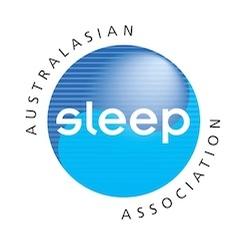
Sleepy Milk, Anxious Apps and Cold Feet: Top Researchers Gather for NZ Sleep Conference
4 May 2015, 1:57PM
Australasian Sleep Association
A milk drink that promotes sleep, iPhone apps that leave you sleepless and a bizarre test to see if cold feet make you feel more alert.
These are just some of the latest sleep research developments to be showcased at Sleep in Aotearoa, a New Zealand meeting of the Australasian Sleep Association to be held in Christchurch on the 4th and 5th May.
The meeting brings together the latest in sleep discoveries, canvassing developments in insomnia, sleepiness, children's sleep, the common snoring condition sleep apnea and its gold standard treatment CPAP.
Angela Campbell, Conference Organiser, Australasian Sleep Association, says understanding sleep and finding new ways to improve the quality of our sleep is vitally important.
"Each of us will spend one third of our life sleeping, and we rely heavily on a good night's slumber to wake up feeling recharged and refreshed for a new day," Dr Campbell says.
"Despite this, sleep is very often taken for granted. For some, it's just something that's squeezed in between daylight hours."
Recent work by sleep researchers confirms sleep so much more than this.
"The more we investigate, the clearer it becomes that how much you sleep, when you sleep and whether you sleep well has a huge bearing on your waking life."
Among the presentations is fresh research into a milk powder drink enriched with the sleep hormone melatonin.
"We've found when taken before bed, this drink can help people with mild insomnia fall asleep faster, sleep more deeply and wake feeling more refreshed," says Dr Campbell, who led this research at the University of Otago's WellSleep laboratory.
Other researchers will reveal results of a small, quirky study that found that cooling one's feet does not help a sleepy person feel more alert.
The conference will also hear from specialists who investigated sleep apnea severity among Maori and Pacific populations, and the effectiveness of Ministry of Health guidelines introduced in 2012 to better manage the disease.
Guest speaker Dr Sarah Biggs, a sleep researcher from Monash University in Melbourne, will present concerns around new smartphone technology that is designed to monitor and improve sleep.
She found that instead of aiding sleep, popular sleep apps like Sleep Cycle and Sleep Time+ could be robbing insomniacs of much needed shut-eye.
As Dr Campbell explains, the technology is often not that accurate and can cause more harm than good, especially for people with sleep disorders.
"Studying the details of your sleep can be fun and may even be helpful for some people, but there can be a downside," Dr Campbell says ahead of the two-day meeting.
"These apps can give a false reassurance to those with insomnia or sleep apnea, leading them to believe they're sleeping well when they're not.
"On the flipside, they can paint a worrying picture of an individual's sleep, adding to their night time anxieties and making a good night's sleep even harder to attain."
Researchers are also critical of wrist watch-style sleep programs, saying that while they are generally more sensitive, there a few studies proving their effectiveness.
The New Zealand meeting of the Australasian Sleep Association and Australasian Technologists Association will be held on May 4 and 5 at the George Hotel and the University of Otago located at Christchurch Hospital, Christchurch.
For more information and interview requests, contact Lucy Williams on mobile: +61 403 753 028.
